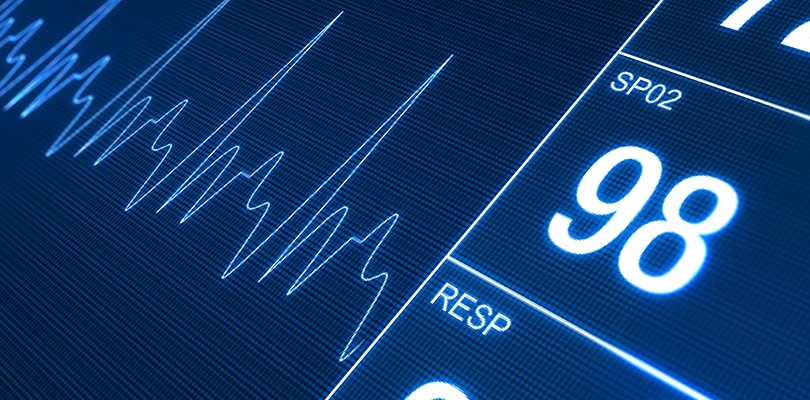Symptoms of Asthma
One of the most common diseases in the US, asthma affects over 17 million Americans, and one-third of cases are diagnosed in children. Knowing the asthma symptoms is important for several reasons. It makes you aware of those serious signs and symptoms that require urgent treatment in the hospital, and you will be able to help your doctor better understand your condition and adjust medication accordingly.
Symptoms vary from individual to individual and can range from mild to severe. Some will have only occasional, mild symptoms, while others will have almost constant symptoms with severe, sometimes life-threatening flare-ups.
The following are six of the common symptoms of asthma. These occur because the airways became inflamed and narrowed, blocking the normal flow of air.
1. Wheezing
Wheezing, when breathing makes a whistling or hissing noise, is the most common symptom of an asthma attack. This sound is commonly heard when you breathe out, but sometimes (in more severe cases) it may be experienced during inhalation as well.
The diagnosis of asthma cannot be made based on wheezing alone, and some asthmatics will not experience wheezing at all. In some cases, wheezing will be absent because of severe limitation of the airflow during a flare-up and because the respiratory muscles are fatigued. In addition, wheezing can occur in other conditions as well, like hay fever or COPD.
Wheezing indicates obstruction in the small airways of the respiratory tract. An episode of wheezing can happen anytime but is more likely in the morning when the protective effects of anti-asthma drugs wear off. It can start suddenly, along with cough, chest tightness and shortness of breath during a flare-up, or can come on gradually over days or hours.
In exercise-induced asthma, wheezing will typically start during or after exercise, and in nocturnal asthma, it will be experienced during the night.

Photo Credit: KatarzynaBialasiewicz / istockphoto.com
2. Persistent Cough
A cough is another common symptom associated with asthma. There is a form of asthma called cough variant asthma where a cough is the only symptom. The cough is dry and without mucus, lasting more than six to eight weeks, and can happen anytime during the day or night. Cough variant asthma is seen more often in children and can progress over time, turning into the classic asthma associated with the typical symptoms of wheezing, chest tightness and shortness of breath.
Most asthma sufferers will have a productive cough, and the sputum is either clear or sticky (medically known as “mucoid” sputum). Many other conditions can cause a cough, including bronchitis, pneumonia and heart disease, and therefore a doctor may want to order some tests to rule them out.

Photo Credit: Ljupco / istockphoto.com
3. Shortness of Breath
Medically known as dyspnea, shortness of breath is a frightening symptom because when you are unable to get enough air it can feel like you are suffocating. Although it can be felt in various situations, like during strenuous exercise, when it is very cold or very hot, or at high altitude, shortness of breath usually involves an underlying medical condition like asthma, pneumonia or heart disease.
During an asthma attack, the shortness of breath can be severe enough to cause intense anxiety and make a person instinctively sit upright and lean forward to be able to better breathe. Sweating and fatigue are also common because of the effort of breathing.
Asthma and COPD both make breathing difficult, but it can be unclear how they differentiate from each other. Learn more about asthma vs. COPD here.

Photo Credit: peterscode / istockphoto.com
4. Increased Heart Rate
During an asthma attack your heart rate will increase because of the shortness of breath. You may also feel a pounding in your chest.

Photo Credit: gpointstudio / istockphoto.com
5. Difficulty Speaking
Difficulty speaking is a problem that can occur during a severe attack of asthma. A person may not be able to say more than a few words without stopping to take a breath. During this time the wheezing may decrease because the air is not moving properly in and out. The oxygen supply is cut off significantly with possible confusion, difficulty concentrating, lethargy, and the skin turns bluish. Emergency treatment is needed in this case. A person who experiences such an episode should wear a medical bracelet at all times, as well as a cell phone to use in emergency

Photo Credit: dolgachov / istockphoto.com
6. Difficulty Sleeping
Sleep troubles are very common in nocturnal asthma, as the symptoms develop at night – usually after midnight or in the early hours of the morning. Sleep problems can also be seen in classic asthma and cough variant asthma.
There are a couple of reasons that explain the link between symptom aggravations during sleep. Firstly, airway resistance is increased during the night whether a person sleeps or not. Secondly, airway function is best before the onset of sleep and drops as sleep progresses. These changes can be found in healthy individuals, too, but the effects are greater in asthma sufferers.
Read more about asthma symptoms over at NewLifeOutlook.
Occupational asthma can be developed when irritants are inhaled on the job. Jobs at risk include construction, painting and farming.








